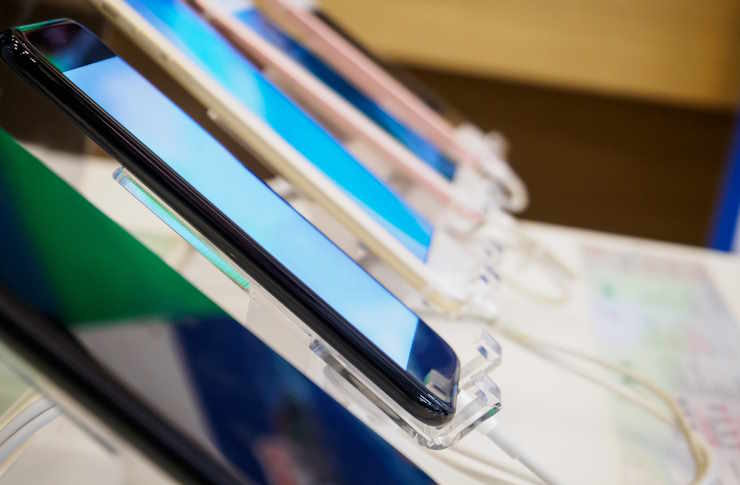Find Smartphone Deals Near You From Trusted Local Providers
Shopping for a smartphone has evolved beyond browsing online marketplaces. Local providers, from independent shops to regional carriers, are offering competitive deals on both new and refurbished devices. Understanding where to look and how these options compare can help you make informed decisions while supporting businesses in your area. This guide explores the landscape of local smartphone shopping in 2025.

Where can you actually find new and refurbished phones at fair local prices?
Local smartphone deals exist in more places than many shoppers realize. Independent electronics retailers often stock current and previous-generation models at competitive prices, particularly for unlocked devices that work across multiple networks. These shops typically offer both new inventory and certified refurbished units that have been tested and restored to working condition.
Carrier stores operated by major wireless companies remain a primary source for smartphone purchases, often bundling device costs with service plans. Beyond the national chains, authorized resellers and regional wireless providers maintain physical locations where customers can compare models hands-on. Many of these stores run promotions tied to plan activations or upgrades, though pricing structures vary significantly.
Refurbished phone specialists have grown in number, operating both standalone shops and kiosks in shopping centers. These businesses focus exclusively on pre-owned devices, offering warranties that typically range from 90 days to one year. Pawn shops and electronics trade-in centers also sell smartphones, though warranty coverage and device history verification may be less comprehensive than dedicated refurbishment operations.
What’s the difference between carrier promotions and independent shop offers?
Carrier promotions typically involve bill credits spread over 24 to 36 months, requiring customers to maintain active service throughout the promotional period. These deals often advertise significant discounts or free devices, but the savings materialize only if you complete the contract term. Early termination usually means forfeiting remaining credits and potentially paying off the device balance in full.
Independent shops generally offer straightforward pricing without service commitments. When they discount devices, the reduced price applies at purchase rather than through future credits. This model provides more flexibility for customers who prefer prepaid plans, want to switch carriers freely, or simply avoid long-term contracts. However, independent retailers rarely match the deep discounts carriers can offer on flagship models through subsidized promotions.
The trade-off centers on flexibility versus maximum savings. Carrier deals work well for customers confident in their service provider choice and willing to commit long-term. Independent shop purchases suit those prioritizing ownership flexibility, immediate cost clarity, and freedom from contractual obligations. Some independent retailers also accept trade-ins, though valuation methods and accepted device conditions vary by shop.
Local Provider Pricing Comparison
| Provider Type | Device Condition | Typical Price Range | Key Considerations |
|---|---|---|---|
| National Carrier Stores | New | $0-$1,200 (with credits) | Requires 24-36 month service contract |
| Regional Carriers | New | $300-$900 | Often includes flexible plan options |
| Independent Electronics Shops | New/Unlocked | $400-$1,000 | No service commitment required |
| Refurbished Specialists | Certified Pre-owned | $200-$600 | 90-day to 1-year warranty included |
| Authorized Resellers | New | $350-$950 | May offer carrier and unlocked options |
Prices, rates, or cost estimates mentioned in this article are based on the latest available information but may change over time. Independent research is advised before making financial decisions.
How local providers are competing with big online retailers in 2025
Local providers have adapted their strategies to remain competitive against online giants. Immediate availability stands as a primary advantage—customers can leave with a device the same day rather than waiting for shipping. This immediacy appeals particularly when replacing broken phones or taking advantage of time-sensitive promotions.
Personalized service differentiates local shops from online transactions. Staff can demonstrate device features, help transfer data from old phones, apply screen protectors, and troubleshoot initial setup issues. Many local providers have expanded their service offerings to include repairs, accessories, and technical support that extends beyond the initial sale.
Price matching policies have become more common among local retailers, with some shops matching or beating online prices when customers provide proof of competitor pricing. Local businesses also leverage their ability to bundle services—offering discounted accessories, free setup assistance, or extended warranties that online retailers cannot easily replicate. Some independent shops have developed trade-in programs that provide instant credit toward new purchases, eliminating the wait time associated with online trade-in processes.
Community relationships factor significantly into local provider strategies. Regular customers often receive notifications about upcoming deals, early access to new inventory, or loyalty discounts. This personalized approach builds retention that purely transactional online relationships struggle to match.
Evaluating warranty and return policies
Warranty terms vary substantially between provider types. National carriers typically honor manufacturer warranties and may offer device protection plans covering damage and loss. Independent shops selling new devices pass through manufacturer warranties but may not offer additional protection options. Refurbished phone specialists provide their own warranties, which usually cover defects but exclude physical damage.
Return windows range from 14 to 30 days depending on the seller, with some requiring unopened packaging for full refunds while others accept opened devices with restocking fees. Carrier purchases often include trial periods during which customers can return devices if service quality disappoints, though activation fees may not be refundable. Reading specific return policies before purchase prevents misunderstandings about eligibility and potential fees.
Documentation matters when exercising warranty rights. Keep receipts, activation records, and any written warranty terms. Some local shops maintain customer purchase histories digitally, but physical proof of purchase remains the safest backup. Understanding what warranties cover—and what they exclude—helps set realistic expectations for post-purchase support.
Making informed local smartphone purchases
Successful local smartphone shopping begins with research. Check current prices across multiple provider types in your area, noting what each includes. Verify whether displayed prices represent outright purchase costs or require service activation. Ask about any ongoing promotions, trade-in values for your current device, and available payment plans.
Inspect refurbished devices carefully, checking for screen quality, button functionality, battery health, and any cosmetic damage. Reputable sellers provide battery health percentages and disclose any known issues. Request to see the device powered on and test basic functions before completing the purchase.
Compare total ownership costs rather than just device prices. A carrier deal requiring an expensive unlimited plan might cost more over two years than buying an unlocked phone outright and using a budget prepaid service. Calculate the actual monthly cost including service, device payments, taxes, and fees to determine true affordability. Local providers can help you understand these calculations when you ask specific questions about total costs rather than focusing solely on device pricing.




